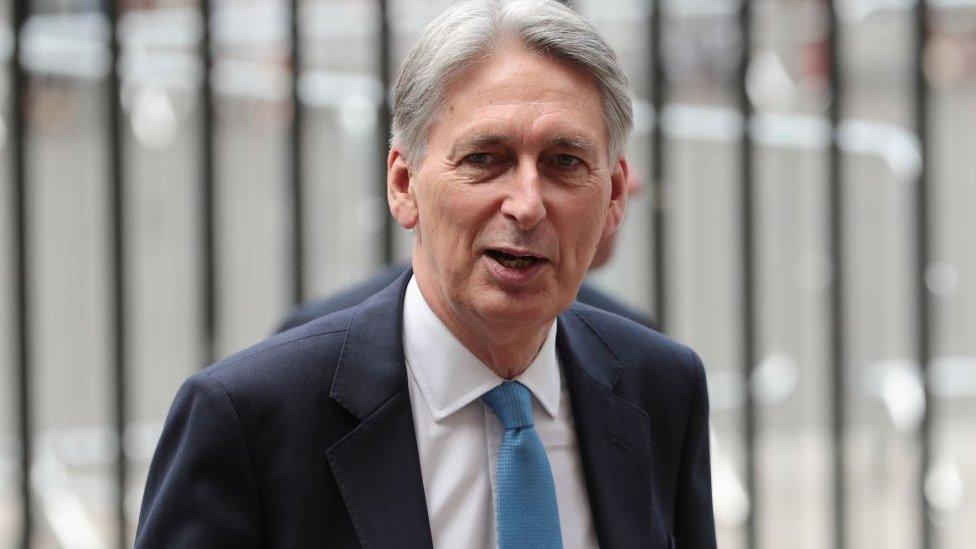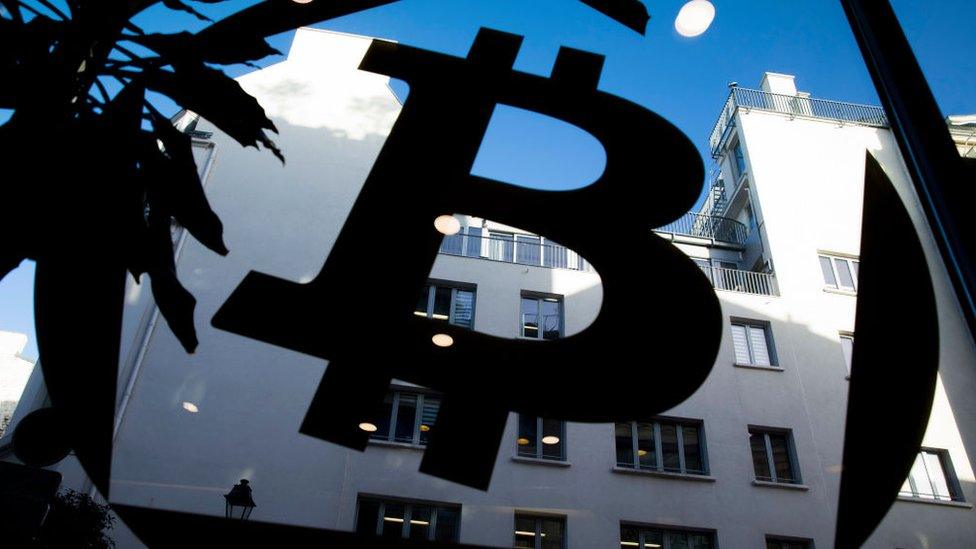Could Blockchain solve Irish border issue?
- Published

At last, a technology solution to the Irish border problem post-Brexit.
No, it's not barcodes, augmented reality glasses or solar-powered drones, but that favourite of every consultant and futurist worth their salt, the blockchain.
And this time it is the Chancellor of the Exchequer who's apparently decided that if a distributed database can solve everything from global warming to age verification, then delivering frictionless trade should be a piece of cake.
"There is technology becoming available," said Philip Hammond when asked about solutions to the border problem at the Conservative Party conference."I don't claim to be an expert on it but the most obvious technology is blockchain."
Now, Mr Hammond shouldn't be embarrassed about his lack of expertise - I've spoken to countless blockchain entrepreneurs and consultants who have failed to give convincing explanations of what the technology does and why it is going to prove so revolutionary.

Blockchain is the underpinning technology that maintains the Bitcoin transaction ledger
But just how he thinks a decentralised and immutable database will smooth the path of goods across the border is unclear. After all, the only large-scale deployment of blockchain to date has been in providing the infrastructure for Bitcoin, where, in the words of the economist Nouriel Roubini, it has processed transactions like a "slow energy-inefficient dinosaur".
I called the Treasury to try to understand why blockchain might be the answer. All I got on the record was this: "We are actively considering technologies that could help facilitate trade over the Northern Ireland - Ireland land border, in order to streamline any requirements that may emerge for traders after the UK leaves the EU. These technological solutions will support our commitment to no physical infrastructure at the land border."
The impression I came away with was that blockchain was just one of a number of technologies they've been looking at but they have no idea yet when or whether it might provide a practical solution.
But one can sympathise with civil servants doubtless under siege from London's teeming army of blockchain hucksters. In recent weeks I've been contacted by excitable PR people telling me how, with the help of their clients, government departments from HM Revenue and Customs to Land Registry are embracing blockchain in a big way.
Once I have got in touch with those departments, I've been met with weary sighs and suggestions that Whitehall's enthusiasm for blockchain has been somewhat exaggerated.
The irony is that many of the most enthusiastic blockchain evangelists are libertarians who believe it will eventually bring about the demise first of central banks then of government itself.
But for now it is the new, new thing, bigger than the internet - so don't be surprised if more politicians climb on the blockchain bandwagon.
- Published25 January 2018
